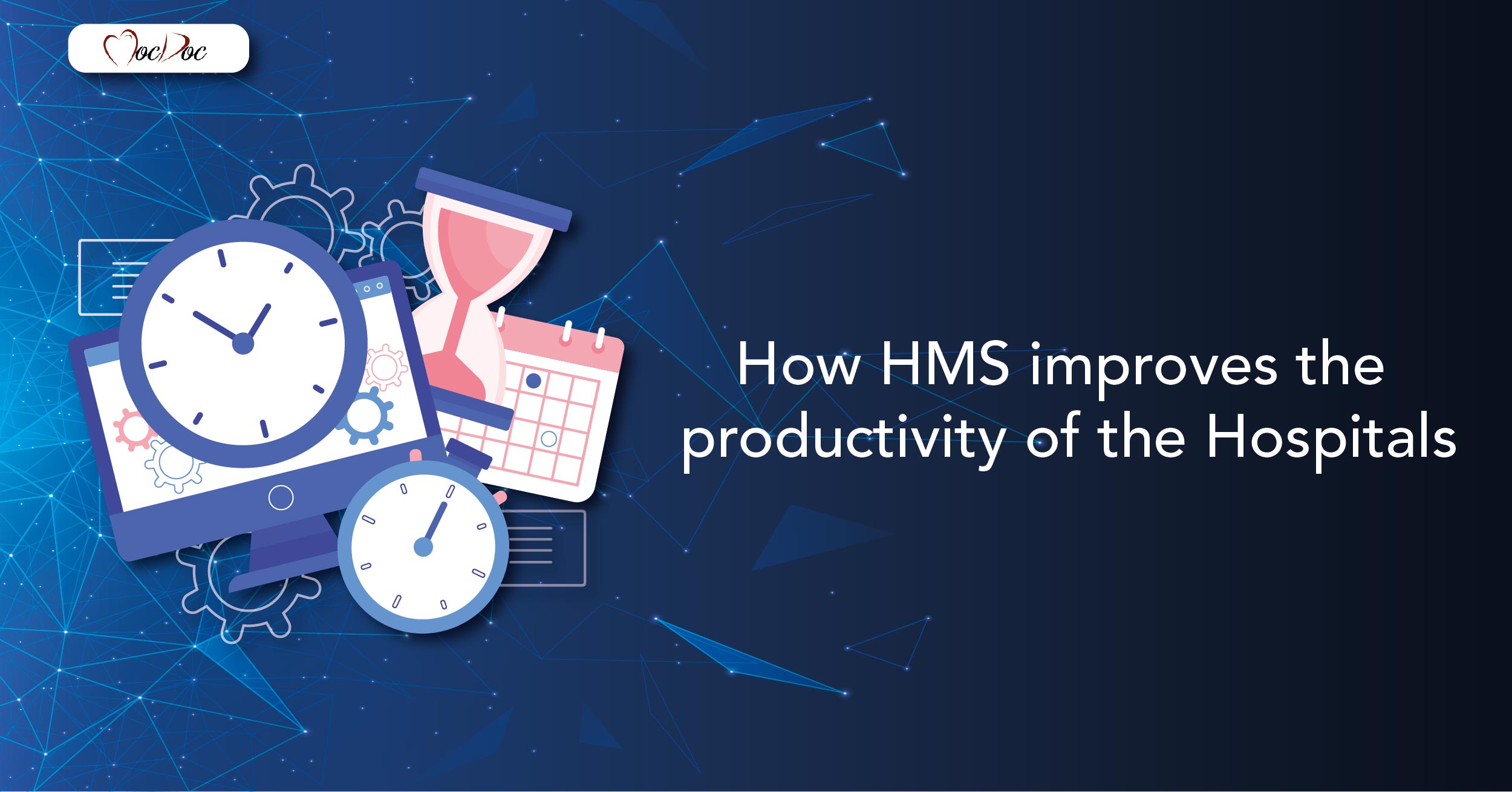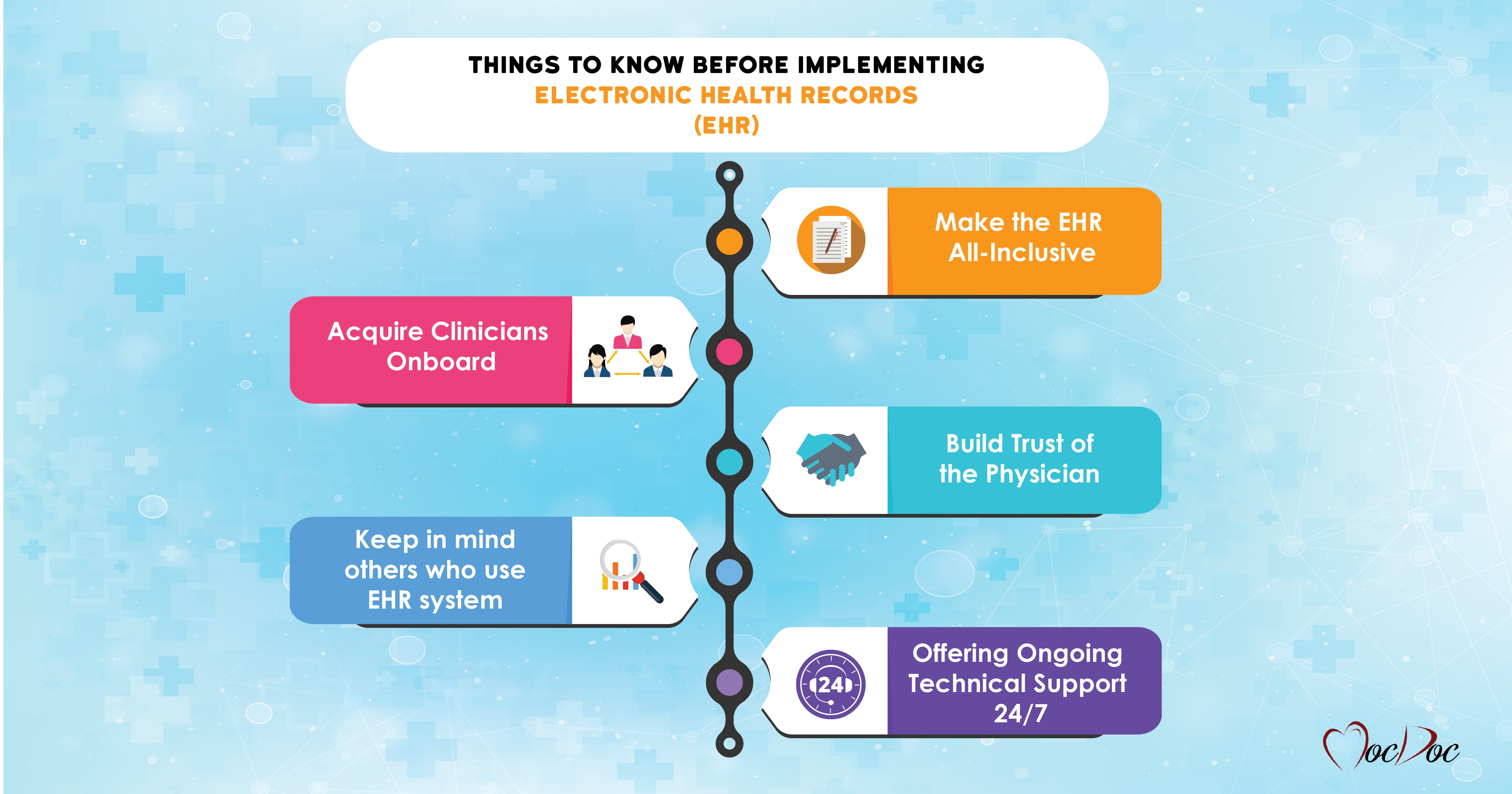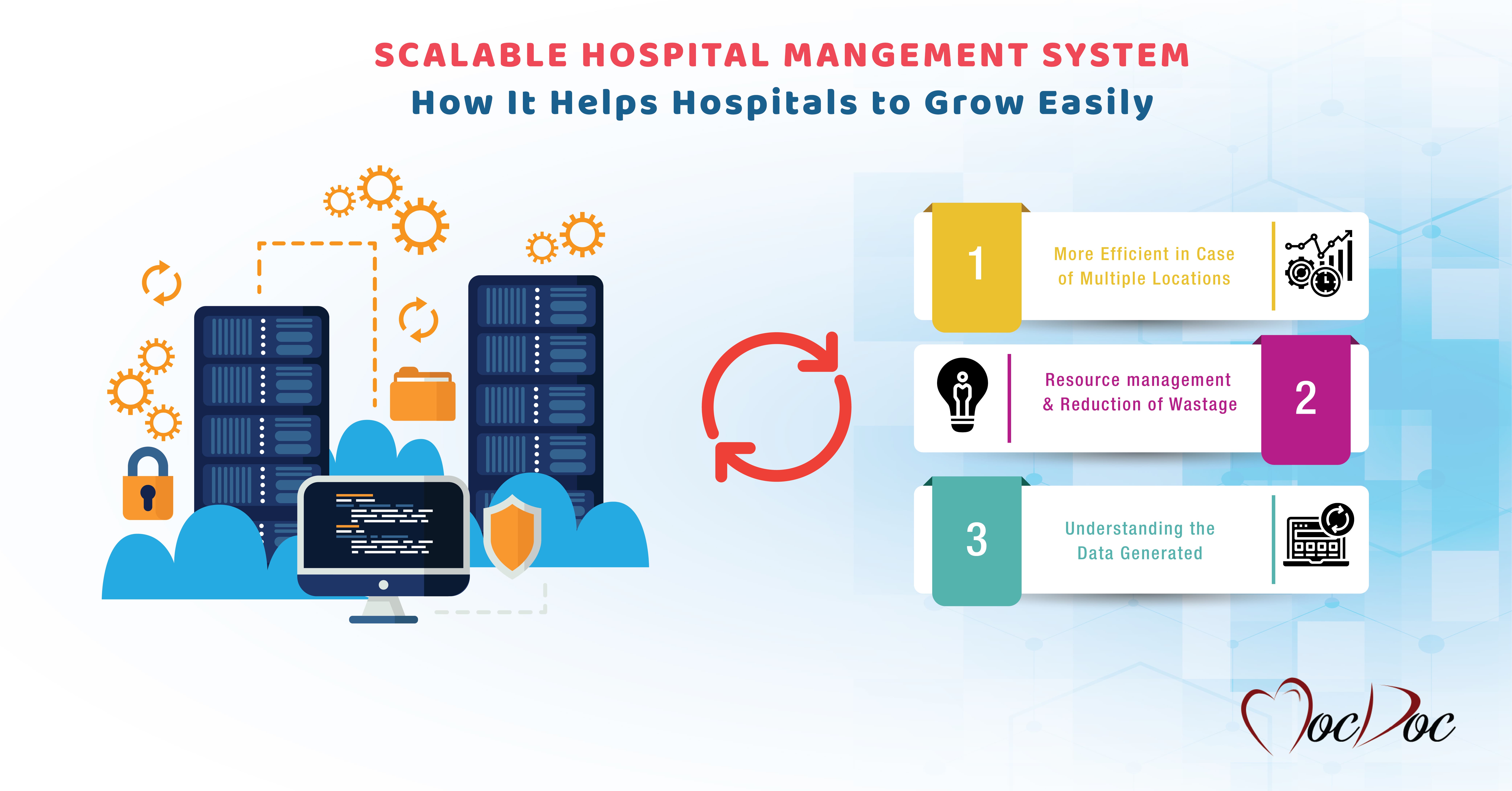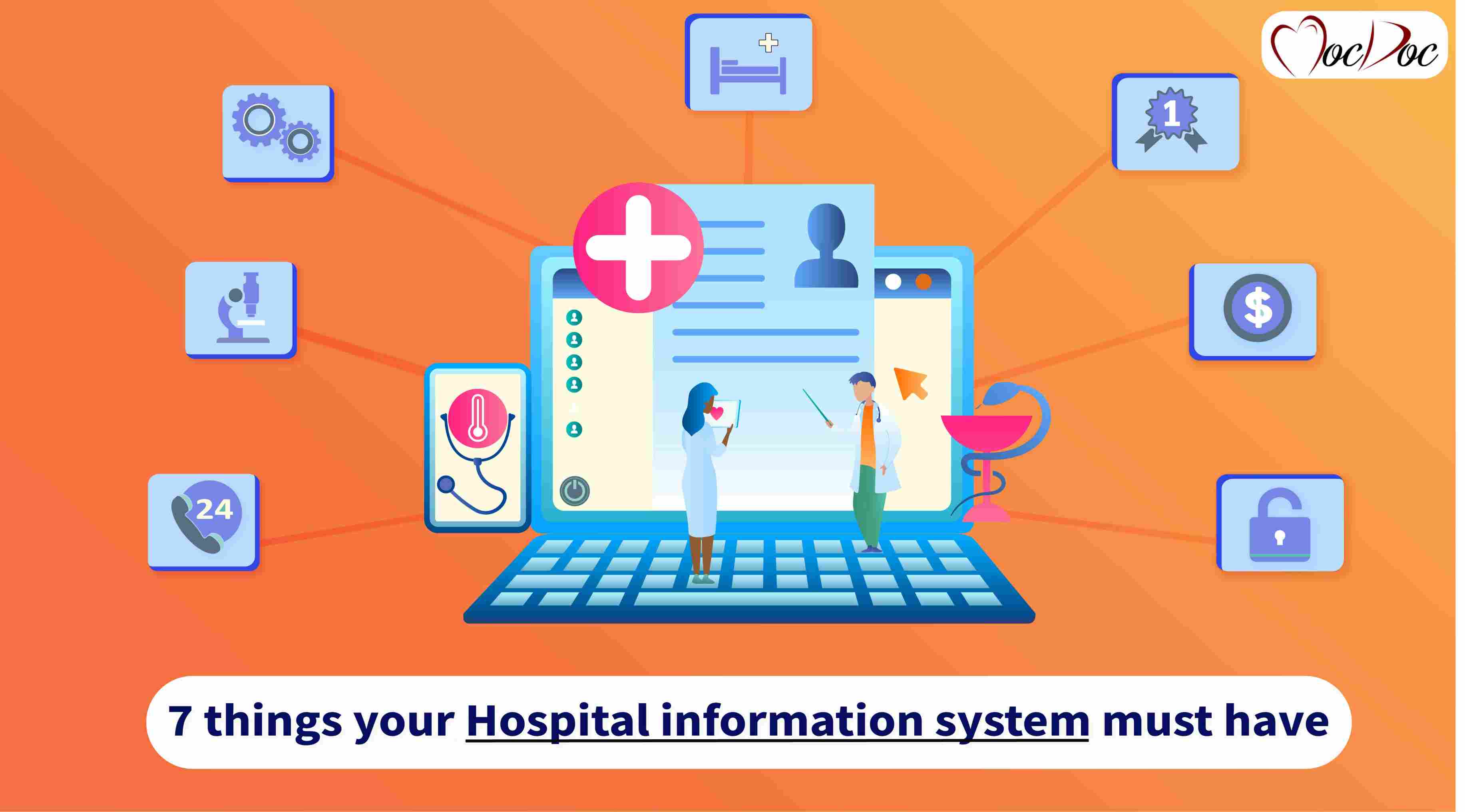December 10, 2018
Challenges while implementing the Hospital Management System
Published by: Sanjana
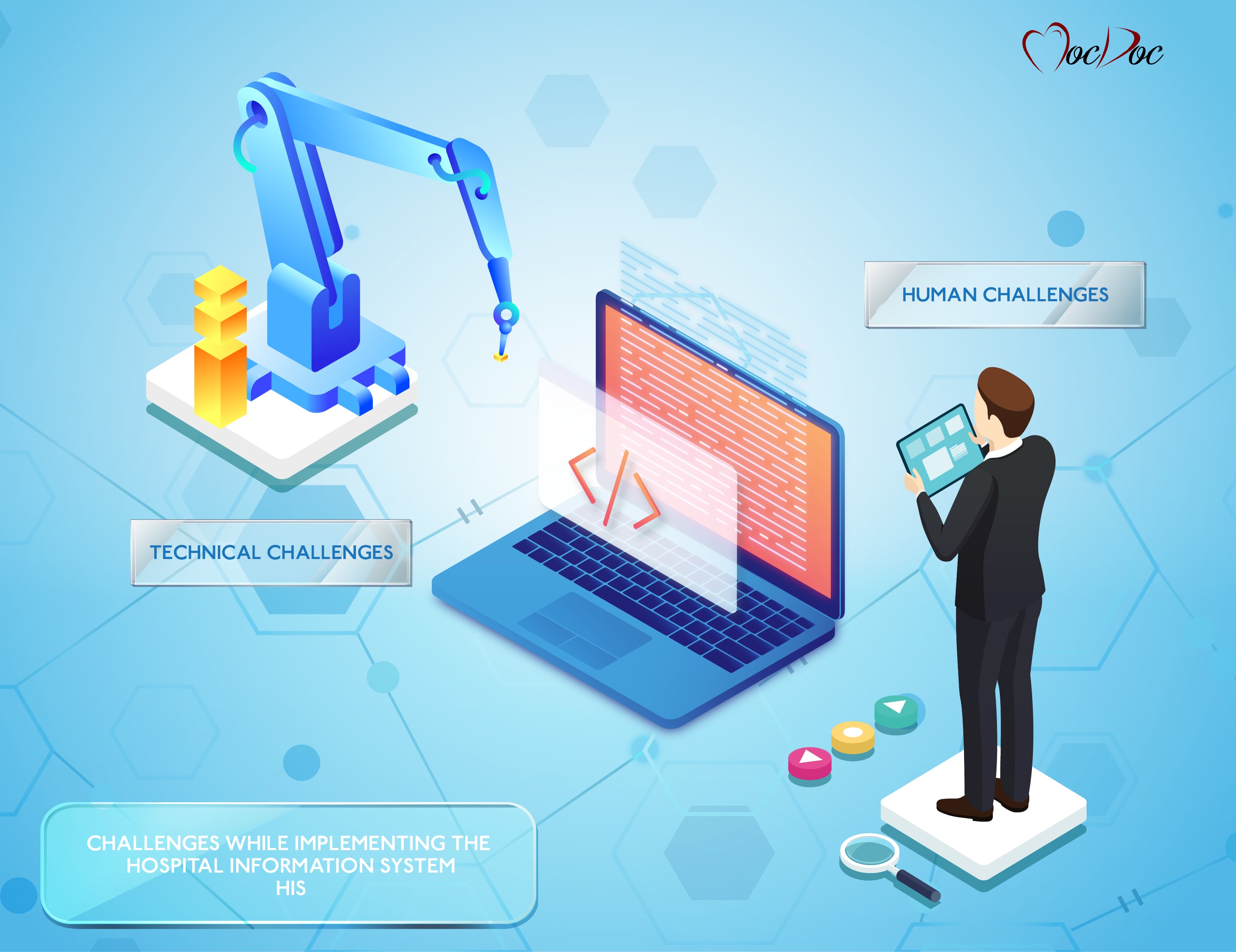
Hospital Management System has been used for decades. Most of the hospitals in India use HMS, but they face particular challenges in implementing it. Among them, technical and human challenges are the complicated factors while implementing HMS.
How can you face the challenges while implementing HMS?
The HMS system helps to manage every piece of information about the patients, like their personal data, comprehensive medical data, and previous medical histories, along with their diagnoses, treatments, investigations, and other medical decisions. Apart from that, HMS helps improve safety and quality and is one of the most affordable options available in the healthcare industry.
Despite their benefits, the healthcare industry faces many challenges. Implementation of HMS still fails in some hospitals due to barriers.
A few Challenging problems that you face while implementing HMS
Human Challenges
While considering human factors include
- Awareness of HMS's advantages & importance.
- In general, Experience and knowledge of using computer applications.
- Impressions and Beliefs regarding HMS and making use of them efficiently.
The researchers in a study have identified three main human challenges that are a barrier to adopting the HMS in healthcare industries.
- There is a shortage of professional healthcare faculty with in-depth knowledge of HMS and other similar technologies.
- Poor acceptance of HMS Software.
- Lack of health informatics professionals capable of establishing and implementing the techniques.
Another few significant problems for unsuccessful HMS implementation include.
- Healthcare specialists nature,
- the lack of time allowed for training and learning on making use of the HMS,
- the lack of healthcare professional support, motivation, and more.
Many studies illustrate that HMS requires more effort, time, and work. There are high chance of HMS slowing down and causing a decrease in productivity.
Technical Challenges:
Other technical challenges that fail the implementation of HMS in the healthcare industry include:
- Networks and computers have different maintenance problems.
- Lack of standards for Data entry and retrieval.
- Difficulties in training users technically to use HMS.
A few tips to overcome Human Challenges
Proceed below to check out a few things you can follow to overcome the human challenges that make HMS implementation tough.
All Medical education programs should include the significance of Hospital management system, its applications, and its advantages. One can improve the awareness of the advantages and benefits of using the HMS with a focused multi-phase approach on any topic. The system can be used from the starting level of healthcare industry schools, and colleges, then with the undergraduate degree, and through various aspects of postgraduate medical education.
Formal training while taking various levels of medical practice and education can improve the knowledge in using a Hospital management system correctly. Many types of research suggest HMS training and teaching needs to be developed and implemented as a subject or course of the postgraduate and undergraduate medical education programs.
Every health information management should include subjects of HMS short courses for medical education programs and healthcare professionals. These programs should be initiated by the health ministry and its formal channels for every healthcare specialist at any healthcare organization and hospital. Apart from that, developing and enhancing self-taught computer science courses in nursing education, medical schools, and postgraduate training is also essential.
It's a good idea to develop both postgraduate and undergraduate specialized programs in Health Information Management, Health Informatics, and Health Information Technology, which increases the number of health informatics specialists and technicians.
Overcoming the negative impressions of HMS's new and experienced staff can be neglected by developing HMS training programs and in-house hospital orientation programs.
You can make the healthcare professional participate and be involved in various stages of system implementation, development, and deployment to improve the healthcare specialists' support.
You can offer the healthcare professional overtime payment, direct and indirect incentives, rewards, bonuses, and more for the hospital departments and sections that implement HMS successfully in a healthcare organization.
Offering healthcare professionals enough time is convenient and suitable for them to learn and train on HMS.
Another good idea is to conduct different exciting training programs for healthcare professionals so that they know about HMS implementation in depth and gain a better understanding.
Here are a few tips to overcome the Technical Challenges
You need to ensure that the HMS commercial providers and vendors are offering the proper user manuals, documentation, troubleshooting, and guidelines for using HMS to the hospitals properly.
Ensuring the working conditions of computers and networks is critical for the software to work better and have fewer maintenance problems. Technical support and hardware maintenance are also significant.
You are upgrading your old communication networks and computers to new ones for enhanced performance.
Make sure you perform every analysis required in depth before the start of the design phase and the implementation phase.
Implementing newer innovations in both hardware and software is required to overcome data entry difficulties.
While considering the software innovations, the system needs to be designed to support structured data entry instead of unstructured one. In the case of hardware innovations, implementing hand-held devices, touch screens, and tablet PCs helps minimize the gap between the recording and data acquisition process and leads to easier accessibility.
Eliminating health information technology and management staff overload can be done by outsourcing a few electronic processing tasks, namely medical transcription of dictating the voice files.
Make sure about the system interface design, and check whether they are understandable and user-friendly.
Data standards usage is one of the crucial steps for source accuracy, quality, reliability, and validation of system data.
Make sure you increase the computer terminal numbers at the point of care.
The above tips will help you eliminate all challenges while implementing your Hospital information management system. Any queries or other information regarding the topics are welcome in the comments section.



